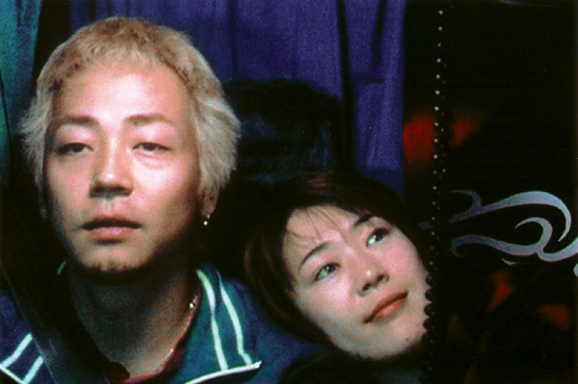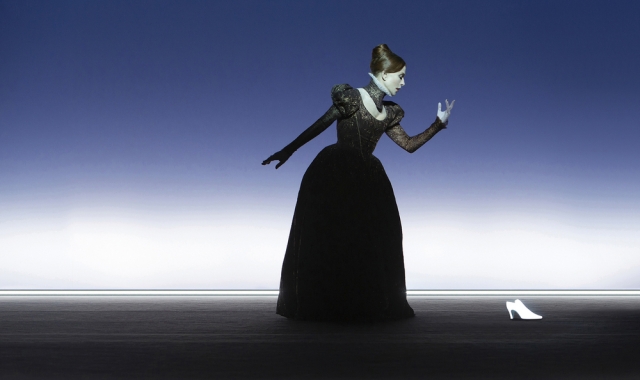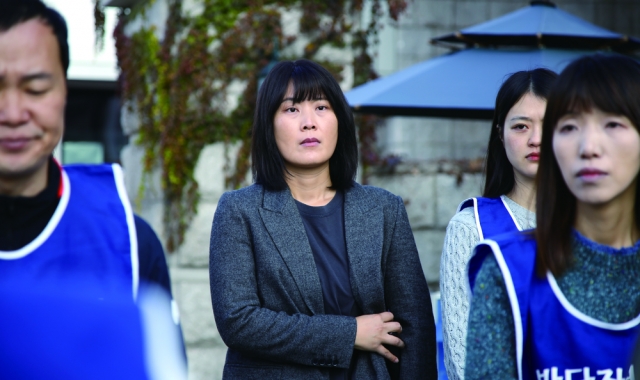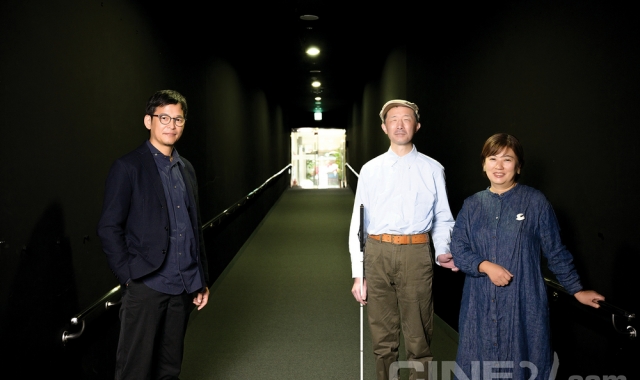평단의 글을 읽어보니 올해 칸영화제 개막작인 왕가위의 <마이 블루베리 나이츠>는 기대에 미치지 못한 것 같다. 영화 비주얼은 칭찬했지만 비평가들에게 배우들의 연기가 그다지 인상적이지 못한 것 같고 대사는 지루해했던 것 같다. 영국 <텔리그래프>의 한 비평가는 더욱 구체적으로 비판했다. “<마이 블루베리 나이츠>에서 일관되게 가락이 맞지 않은 음은 보이스오버의 광범위한 사용이다. 마음의 문제를 명상하는 보이스오버는 <섹스 & 시티> 캐리 브래드쇼의 보이스오버 정도로 깊이가 없고 짜증나기까지 한다.”
<섹스 & 시티> 팬들에게 사과함과 더불어, 보이스오버 내레이션을 과도하게 사용하는 것은 비평가가 영화에 던질 수 있는 가장 쉬운 비판 중 하나라는 사실 또한 인정할 수밖에 없다. 그 이유는 단순하고 익숙하다. ‘보여주기’는 대개 늘 ‘말해주기’보다 효과적이다. 보이스오버는 우리에게 “나는 몹시 바보 같아서 나 자신을 때리고 싶을 정도였다”라고 말해준다. 하지만 배우가 실제로 자신의 머리를 때리는 것을 보여주는 것이 훨씬 효과적이다. 보이스오버 내레이션은 게으른 영화 연출이다.

아니면… 그렇지 않을 수도 있나? 원칙적으로 말은 되지만, 동시에 보이스오버는 잘하면 놀랄 만한 효과를 낳을 수 있는 것도 사실이다. 히로키 류이치의 <바이브레이터>의 기억에 남을 만한 오프닝은 단지 편의점 안에서 서성거리는 한 여자를 담는다. 하지만 여기서 보이스오버는 그녀의 속마음을 드러내며 우리를 강하게 그녀의 세계 안으로 끌어당긴다. 단 5분 만에 우리는 그녀의 정서적인 삶의 미세한 부분까지 느낄 수 있게 된다. 이 영화는 놀라운 손길로, 심지어 그녀가 감히 소리내어 말하지 못하는 말들을 때때로 자막으로 보여준다. 영화사의 과거로 되돌아가보면 로베르 브레송 같은 대가들도 스크린에서 보는 이미지들에 대한 지각을 구체화하기 위해 보이스오버에 상당히 의존하기도 한다. <시골 사제의 일기>에서 사제의 딜레마와 불안은 주연배우의 신중하고 무표정한 얼굴과 대비되며 대개 보이스오버를 통해 표현된다. 이 영화가 진행되면서 우리는 이 작품과 우리를 이어주는 감정적인 생명줄로서의 보이스오버에 점점 더 의존하게 된다.
약간의 창조성으로도 보이스오버는 관객에게 정보를 전달하는 새롭고 강력한 방법이 될 수 있다. 그러나 더 흥미로운 것은 보이스오버가 관객과 등장인물간의 친밀감을 형성할 수 있다는 것이다. 이런 것의 일부는 단지 숙련된 기법의 활용이다. 감독들은 종종 외부세계의 소리를 낮춰주고 좀더 직접적인 것처럼 들리도록 보이스오버의 사운드 피치를 올리는 방식으로 사운드트랙을 조작한다. 마치 등장인물이 말하는 속내를 듣는 동안 외부에서 일어나는 일들에 내열된 듯 관객이 등장인물의 머릿속에 있는 것처럼 느끼게 만든다.
관객으로서 우리는 영화에 많은 것들을 요구한다. 흥분, 미스터리, 경이, 공포, 웃음… 친밀함까지 찾는 것이 무리인가? 독자와 친밀한 관계를 맺는 소설가는 논쟁거리가 되지 않는 듯하다. 그러나 훨씬 더 비개인적인 매개인 영화에서 장애물은 훨씬 더 크다. 이것을 시도한 몇몇 감독들은 상당히 성공적인 경우 그 영화를 보고 싶도록 만든다.
한국 감독들은 보이스오버 내레이션의 ‘나쁜’ 사용을 상당히 잘 피하는 것 같다. 한국영화의 강점 중 하나는 설교하지 않으면서 직접적으로 전달하는 것이다. 때때로 관객에게 어떻게 생각하라고 하는 데 집착하는 할리우드영화와 달리 한국영화는 대개 그들의 이야기를 표현하고 관객이 자신들의 결론을 내리도록 한다. 그러나 다른 한편으로는 <바이브레이터>나 <시골 사제의 일기>에서 볼 수 있는 정서적으로 강렬한 내면의 독백을 창조해보려는 한국 감독들이 거의 없어 보인다. 분명히 내 머릿속을 채우는 한국 도시민들의 이미지는 집단적인 경험에 관한 것들이다. 중매, 소주 파티, 노래방, M.T. 그러나 이런 것들은 나를 놀라게 한다. 예를 들면 도스토예프스키의 단편 <백야>에서 번민하는 낭만적인 외톨이의 속내는 한국 관객이 관심없어하는 것인가, 아니면 이것이 미래의 한국 감독들이 채워야 할 미개발의 틈새시장인가?
Voices in My Head
From reading the reviews, it seems that Wong Kar Wai's My Blueberry Nights, which opened this year's Cannes festival, is a bit of a letdown. Although praising the film's visuals, critics seem unimpressed by the acting and bored by the dialogue. A critic from The Telegraph in the UK is more specific in his criticism: "The one consistently false note in My Blueberry Nights is the extensive use of voiceover. These meditations on matters of the heart are about as profound, and almost as annoying, as those of Carrie Bradshaw in Sex and the City."
With apologies to fans of Sex and the City, it has to be admitted that heavy use of voiceover narration is one of the easiest criticisms one can toss at a film. The reason is simple and familiar: "showing" is almost always more effective than "telling". The voiceover tells us, "I felt so stupid I wanted to hit myself," but it's far more effective to show the actor actually smacking himself in the head. Voiceover narration is lazy filmmaking.
...Or is it? While the idea makes sense in principle, it's also true that, when done well, voiceovers can achieve breathtaking effects. The memorable opening of Hiroki Ryuichi's Vibrator consists merely of a woman walking back and forth in a convenience store, but the voiceover presenting her inner thoughts pulls us forcefully into her world. In only five minutes we gain a detailed sense of her emotional life. In a surprising touch, the film even adds the occasional printed intertitle to show us words she dares not speak out loud.
Going back further in film history, no less a master than Robert Bresson relied heavily on voiceover to add to and shape our perceptions of the images we see on the screen. In Diary of a Country Priest, the priest's dilemmas and anxieties are presented almost entirely through voiceover, in contrast to the guarded and inexpressive face of the main actor. As the film progresses, we come to rely on the voiceover more and more as the emotional lifeline that ties us to the work.
With a little creativity, voiceover can be a novel and powerful way to transmit information to the viewer. But perhaps even more interesting is the way that voiceover can establish a sense of intimacy between the viewer and the characters. Part of this is just a skilled use of technique: directors often manipulate the soundtrack, softening the sounds of the outside world and modifying the pitch of the voiceover to make it sound more immediate. It's like we are inside the character's head, buffered from events on the outside, hearing thoughts as they are spoken.
As viewers, we demand many things from films: excitement, mystery, wonder, terror, laughter... is it unreasonable to seek intimacy as well? The idea of a novelist establishing an intimate connection with a reader seems uncontroversial, but in cinema -- a much more impersonal medium -- the hurdles are far greater. That a few directors attempt this, and are largely successful, is encouraging to see.
For their part, Korean directors seem to do quite well at avoiding the "bad" use of voiceover narration. One of Korean cinema's strengths is its immediacy and lack of moralizing. Unlike Hollywood films, which at times seem to obsess over telling its viewers what to think, Korean films usually just present their stories and let viewers draw their own conclusions.
On the flip side, however, it seems that few Korean directors have ever attempted to create the sort of emotionally intense inner monologue that we see in Vibrator or Diary of a Country Priest. Admittedly, the images of urban Koreans that fill my mind are those of collective experiences: blind dates, soju parties, noraebang, M.T. It makes me wonder, though: are the inner thoughts of a tortured, romantic loner seen, for example, in Dostoyevsky's short novel White Nights something that Korean audiences would have no interest in, or is this an untapped niche that some Korean director of the future is destined to fill?






